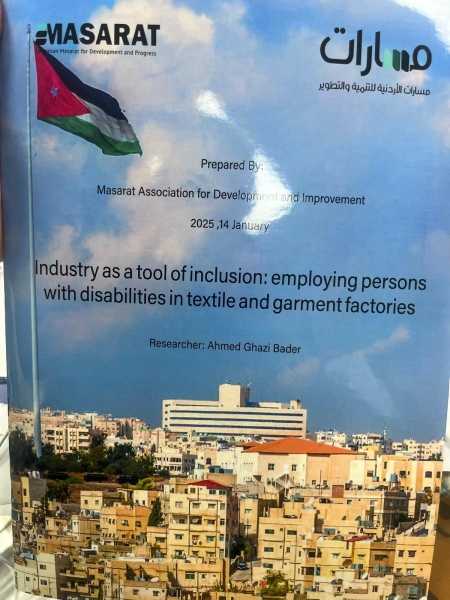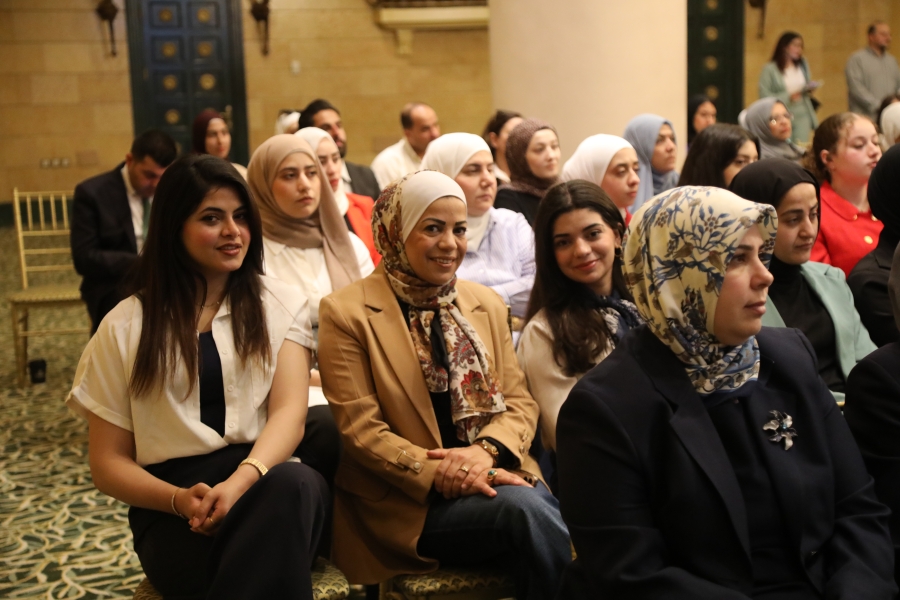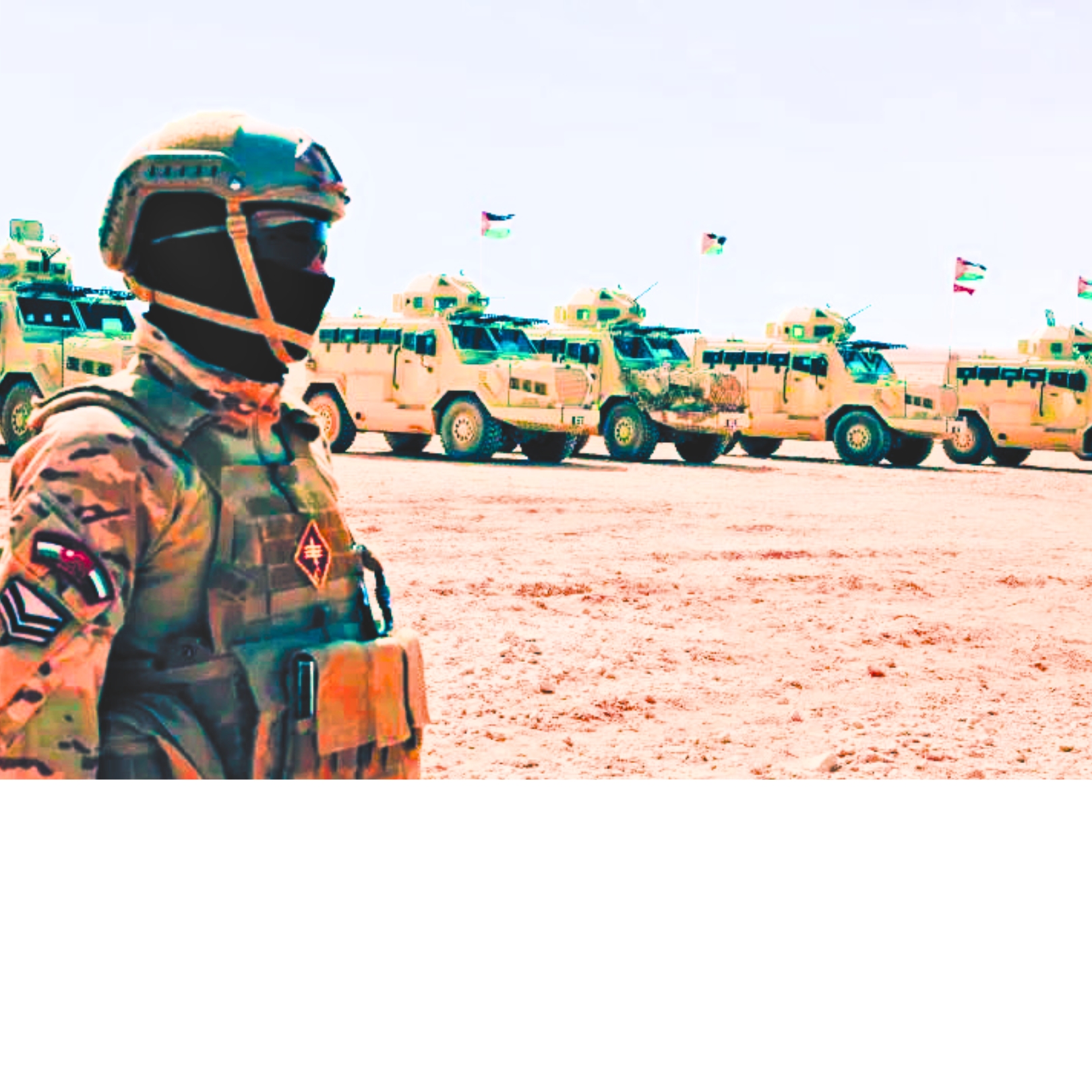" مسارات" تنشر توصيات الندوة الحوارية "مستقبل قانون المطبوعات والنشر"

تنشر مؤسسة مسارات الأردنية للتنمية والتطوير ورقة موقف (وتوصيات) مقدمة من مجموعة من الخبراء والإعلاميين حول قانون المطبوعات والنشر وعملية الإصلاح والتحول الديمقراطي، وذلك خلال الندوة الحوارية التي نظمتها مؤسسة مسارات الارنية للتنمية والتطوير في ٦ حزيران الجاري بعنوان "مستقبل قانون المطبوعات والنشر" ضمن مشروع البيئة الممكنة لتعزيز الحريات الديمقراطية وسيادة القانون بالشراكة مع مؤسسة فريدريش ايبرت الالمانية.
مقدمة
تعتبر حرية الرأي والتعبير ووسائلها (الصحافة والإعلام) شرط مسبق للديمقراطية.
يُعتبر الحصول على المعلومات شرطاً مُسبقاً لضمان حرية الرأي والتعبير، وحرية الصحافة والإعلام، ومن دون معلومات دقيقة وموثوقة ستكون حرية الرأي والتعبير وحرية الصحافة والإعلام مُجرّد آراء وانطباعات غير مبنيّة على حقائق.
يُعتبر حق الجمهور في المعرفة، وفي الاطلاع على المعلومات، من أحد أهم ركائز البناء الديمقراطي لأيّ دولة في العالم، انطلاقاً من أنّ المشاركة الفاعلة للمواطنين تعتمد على المعلومات. كما يُعتبر الحصول على المعلومات أداة اساسيّة في مكافحة الفساد وكشف أخطاء الحكومات، وبها يتمكن الصحفيون والمنظمات غير الحكومية والمواطنون من تسليط الضوء على الأخطاء بما يساعد على معالجتها. كما أصبح الوصول إلى المعلومات حقاً أساسيّاً من حقوق الإنسان لإعمال حقوق أخرى، وهو مطلب سابق لكل فرد للمشاركة في المجتمع واتخاذ قرارات حكيمة من بين عدة بدائل.
وتقع الحماية الدستورية لحرية الرأي والتعبير وحرية الصحافة والطباعة والنشر ووسائل الإعلام في صدر الدستور الأردني حيث تنص المادة 15 منه:
1- تكفل الدولة حرية الرأي، ولكل اردني ان يعرب بحرية عن رأيه بالقول والكتابة والتصوير وسائر وسائل التعبير بشرط ان لا يتجاوز حدود القانون.
2- تكفل الدولة حرية البحث العلمي والإبداع الأدبي والفني والثقافي والرياضي بما لا يخالف أحكام القانون أو النظام العام والآداب .
3- تكفل الدولة حرية الصحافة ضمن حدود القانون.
4- لا يجوز تعطيل الصحف ووسائل الإعلام ولا إلغاء ترخيصها إلا بأمر قضائي وفق أحكام القانون.
ومن أهم المعايير الدولية لحرية الرأي والتعبير منا تنص عليه المادة 19 من العهد الدولي الخاص بالحقوق المدنية والسياسية. والأردن دولة طرف في العهد (نُنشر في جريدة الرمسية بتلاريخ 15/6/2006) ضمن 169 دولة صادقت عليه.
المادة 19 من تضمن حق حرية التعبير كما يلي:
1. لكل شخص الحق في حرية الرأي
2. لكل شخص الحق في حرية التعبير، يشمل هذا الحق حريته في التماس وتلقي ونقل المعلومات والأفكار من جميع الأنواع، دونما اعتبار للحدود، سواء بالقول أو الكتابة أو الطباعة، في شكل فني أو بغيرها من أي وسائل الاعلام التي يختارها.
3. يقع على ممارسة الحقوق المنصوص عليها في الفقرة 2 من هذه المادة واجبات ومسئوليات خاصة. وعليه يجوز إخضاعها لبعض القيود ولكن شريطة أن تكون محددة بنص القانون وأن تكون ضرورية
أ) إحترام حقوق الآخرين أو سمعتهم،
ب) حماية الأمن القومي أو النظام العام أو الصحة العامة أو الآداب العام
وجرى استحداث "الفحص الثلاثي الأجزاء Three part test" حتى يكون القيد مشروعاً:
- استثنائية بنص القانون لا يجوز التوسع فيها
- متناسبة proportionate لحماية هدف مشروع وليس استعرض القوة كتجريم نقد الحكومة (رأينا مؤخرا شكاوى نواب وأعيان استعملوا القانون لتحصين أنفسهم من النقد).
- ضرورية في مجتمع ديمقراطي أي لا يكون الحل إلا باستخدام التقييد
كما أن الأردن دولة طرف في الميثاق العربي لحقوق الإنسان حيث تنص المادة 32 منه:
1. يضمن هذا الميثاق الحق في الإعلام وحرية الرأي والتعبير وكذلك الحق في استقاء الأنباء والأفكار وتلقيها ونقلها إلى الآخرين بأي وسيلة ودونما اعتبار للحدود الجغرافية.
2. تمارس هذه الحقوق والحريات في إطار المقومات الأساسية للمجتمع ولا تخضع إلا للقيود التي يفرضها احترام حقوق الآخرين أو سمعتهم أو حماية الأمن الوطني أو النظام العام أو الصحة العامة أو الآداب العامة.
وفي أيلول من عام 2011، تبنّت لجنة حقوق الإنسان في الأمم المتحدة التعليق العام رقم General Comment 34 وهو أطول تعليق يفسر المادة 19 من "العهد الدولي الخاص بالحقوق المدنية والسياسية". وجاء في التعليق ”إنّ المادة 19 من العهد "تضمن الحق في الوصول إلى المعلومات التي تحتفظ بها الهيئات الحكومية العامة. ويجب على الدول أن تبذل قصارى جهدها لضمان الوصول بسرعة وسهولة وفعالية وعملية للمعلومات التي تسيطر عليها الدولة في المجال العام".
”وتشمل حرية الرأي وحرية التعبير حق الاطلاع على المعلومات التي تكون بحوزة الهيئات العامة، لإعمال هذا الحق، ينبغي للدول الأطراف أن تتيح للعموم بصورة استباقيّة المعلومات بطريقة سهلة وفوريّة وفعّالة وعمليّة. كما ينبغي لها أن تصدر الإجراءات الضروريّة التي تمكّن الفرد من الحصول على المعلومات، بطرق منها سن تشريع يكفل حرية الحصول على المعلومات.
وقد وصفت منظمة المادة 19، التي تتخذ من لندن مقرّاً لها المعلومات بأنها "أوكسجين الديمقراطية"، ذلك أنه "من أجل أن تعمل الديمقراطية، يجب تمكين المواطنين من الحصول على المعلومات ليستطيعوا اتخاذ قرارات لها قيمة".
شكلت "هبة نيسان" عام 1989 احتجاجاً على قرار للحكومة آنذاك برفع اسعار المشتقات النفطية والمواصلات وسلع غذائية اساسية نقطة مهمة في التحول الديمقراطي في الأردن، وأصبح لزاما أن تواكب ذلك التعددية السياسية وحرية التعبير وحرية الصحافة[1]. وتم إجراء انتخابات نيابية عامة بعد حظر للأحزاب استمر 33 عاماً.
ومع عملية التحول الديمقراطي تم إقرار التعددية عبر:
1 - تعددية الآراء عبر إقرار قانون المطبوعات والنشر رقم 10 لسنة 1993
2 - تعددية الأحزاب، قانون الأحزاب السياسية رقم 32 لسنة 1993
كما تم إقرار عدة قوانين ذات علاقة مثل: قانون محكمة العدل العليا، وقانون محكمة أمن الدولة مع قابلية جميع أحكامها لرقابة محكمة التمييز، وإلغاء الأحكام العرفية.
ومنذ ذلك الحين يخطو الأردن ببطء نحو "الديمقراطية المقيدة" كما وصفها أحد المؤرخين الأردنيين[2].
شكلت قوانين المطبوعات والنشر تاريخياً الأداة الرئيسية للحكومات الأردنية المتعاقبة في ضبط الصحافة والتحكم بها. ومنذ بدء عملية التحول الديمقراطي صدرت عدة قوانين للمطبوعات والنشر "تتراوح في درجة إنسجامها مع معايير حقوق الإنسان المكفولة في المواثيق الدولية"[3].
"ومن خلال المراجعة الشاملة لقوانين وأنظمة المطبوعات 1920-2000 إتضح أنها مقتبسة من قانون المطبوعات العثماني لسنة 1909، وظل كل من قانون المطبوعات العثماني لسنة 1909، وقانون المطبوعات الفلسطيني لسنة 1933، ساري المفعول في الأردن حتى أبطل العمل به بقانون المطبوعات لسنة 1953"[4]. وكمثال آخر على روح القوانين العثمانية وتأثيرها في التشريعات الأردنية، بقي قانون حق التأليف العثماني الصادر عام 1910 ساري المفعول في الأردن[5] حتى عام 1992 بصدور قانون حماية حق المؤلف رقم 22 لسنة 1992.
وضمن محاولات الإصلاح الإعلامي أقرّت الحكومة الاستراتيجية الاعلامية (2011-2015) والتي نصت على "إنهاء العقوبات السالبة للحرية في الجرائم المرتكبة بواسطة المطبوعات وجرائم الرأي، وإيجاد نصوص واضحة وصريحة بمنع التوقيف والحبس في قضايا المطبوعات والنشر، وإلغاء المصطلحات الملتبسة الواردة في التشريعات التي تحتمل أكثر من تأويل أو تفسير. التحول من الذم والقدح الجزائي إلى الذم والقدح المدني، ومن شأن هذا التحول استثناء النيابة العامة من الموضوع وأن يقوم الموظف العام بصفته الشخصية برفع القضية، وفي حال فرض عقوبات يجب أن تراعي العقوبات مبدأ التناسبية وتقليل الضرر على حرية التعبير".
كما نصت على أولوية لتعديل القوانين التالية:
1- قانون المطبوعات والنشر رقم 8 لسنة 1998م
2- قانون العقوبات وتعديلاته رقم 16 لسنة 1960
3- قانون محكمة امن الدولة وتعديلاته رقم 17 لسنة 1959
4- قانون حماية أسرار ووثائق الدولة رقم 50 لسنة 1971
5- قانون انتهاك حرمة المحاكم رقم 9 لسنة 1959
6- قانون نقابة الصحفيين رقم 15لسنة 1998
7- قانون الإعلام المرئي والمسموع رقم 71 لسنة 2002
8- الجرائم الالكترونية رقم 27 لسنة 2015 (جرى تقديم مشروع قانون معدِّل له لكن رده مجلس النواب (بتاريخ 19/2/2019) والآن موجود في مجلس الأعيان).
9- قانون ضمان حق الحصول على المعلومات رقم47 لسنة 2007
وجرى الإلتزام بإنهاء العقوبات السالبة للحرية في قانون المطبوعات والنشر وقانون الإعلام المرئي والمسموع، أما بقية القوانين فلم يتم تعديلها.
من الجدير ذكره أن الجنح الصحفية لا تقبل الطعن عليها أمام محكمة التمييز الأردنية إلا بإذن أو بطلب خطي من وزير العدل لمصلحة القانون، ولهذا ندر وجود أحكام لأعلى محكمة قانون في الأردن في هذا المجال.
وفيما يلي أهم المآخذ على قانون المطبوعات والنشر الساري المفعول:
1- تنص (المادة 2) على تعريف الصحفي: عضو النقابة المسجل في سجلها واتخذ الصحافة مهنة له وفق أحكام قانونها.
ويشترط قانون نقابة الصحفيين وقانـون المطبوعـات والنـشر أن يكون الصحفي أردنيا عضواً مسجلاً في سجل الصحفيين الممارسين. ويمنع غير الصحفي من ممارسة المهنة أو مراسلة المطبوعات الأجنبية. وتطلب نقابة الصحفيين من الحكومة بين الحين والآخر عدم التعامل مع غير أعضاء النقابة في تغطية المؤتمرات الصحفية والمناسبات بهدف "الحد من التجاوزات والإنتهاكات التي يلحقها غير الأعضاء بمهنة الصحافة".
وتشكل إلزامية العضوية في نقابة الصحفيين إنتهاكاً لمواثيق حقوق الإنسان. تنص المادة 20- 2 من الإعلان العالمي لحقوق الإنسان: لا يجوز ارغام احد على الإنتماء الى جمعية ما.
واصدرت المحكمة عبر- الاميركية لحقوق الانسان ، ومحاكم اوروبية عدة قرارات حول عدم قانونية الالزامية في جمعيات ونقابات الصحفيين.
وتقول المحكمة عبر- الأميركية لحقوق الإنسان في رأي استشاري:" عندما يتم انتهاك حق حرية التعبير.. فانه لا يتم فقط انتهاك حق الفرد ( الصحفي) وإنما حق جميع الذين "يتلقون" المعلومات والأفكار". وقد تكون إلزامية العضوية مقبولة في حالة المحامين والأطباء إلا أنها تشكل إنتهاكاً لحرية التعبير إذا فُرضت على الصحفيين.وجاء هذا القرار بعد دعوى رفعها صحفي تم منعه من ممارسة المهنة لأنه ليس عضوا بنقابة الصحفيين الوحيدة في كوستا ريكا. أنظر: The Article 19 Freedom of Expression Manual, London 1993 p205
2- تشكل المواد (4 و5 و7) حصان طروادة لرفع قضايا على الصحفيين بسسبب مطاطية مصطلحاتها إضافة إلى أنها تتضمن أخلاقيات المهنة زكان من الأفضل نقلها لقانون النقابة.
المادة 4: تمارس الصحافة مهمتها بحرية في تقديم الأخبار والمعلومات والتعليقات وتسهم في نشر الفكر والثقافة والعلوم في حدود القانون وفي إطار الحفاظ على الحريات والحقوق والواجبات العامة واحترام حرية الحياة الخاصة للآخرين وحرمتها. المادة 5 :على المطبوعة تحري الحقيقة والالتزام بالدقة والحيدة والموضوعية في عرض المادة الوطنية وحقوق الإنسان وقيم الأمة العربية والإسلامية. المادة 7: آداب مهنة الصحافة وأخلاقياتها ملزمة للصحفي، وتشمل ب ـ اعتبار حرية الفكر والرأي والتعبير والاطلاع حقا للصحافة والمواطن على السواء. |
3- التوقيف:
بما أن قانون المطبوعات والنشر لا يتمضن عقوبات بالحبس فلا يجوز التوقيف في القضايا المرتكبة خلافا له., لأن العقوبات به هي الغرامة. لكن لا يمنع ذلك من التوقيف إذا تمت المحاكمة أمام محاكم أخرى, أو خلاف قوانين أخرى كقانون الجرائن الإلكترونية.
وفي مصر كمثال تنص المادة (135) من قانون أصول الإجراءات الجنائية " لا يجوز الحبس الاحتياطي في الجرائم التي ترتكب بواسطة الصحف". وتحظر المادة 41 من قانون تنظيم الصحافة رقم 96 لسنة 1996 الحبس الاحتياطي للصحفي إلا في المادة 179 عقوبات, المتعلقة بإهانة رئيس الجمهورية.
4- تقييدات غير ضرورية: عقوبات مختلفة للفعل الواحد.
الذم والقدح والتحقير تتدرج العقوبة في قانون العقوبات ارتفاعاً من التحقير ثم القدح ثم الذم، بينما تتساوى العقوبة في قانوني المطبوعات والجرائم الإكترونية. أضف لذلك أن شرط الذم والقدح أن يرتكب الفعل علانية وشرط التحقير غير العلانية.
قانون المطبوعات: المادة 38: يحظر نشر أي مما يلي: | قانون العقوبات مادة (358): يعاقب كل من ذم آخر بإحدى الصور المبينة في المادة (188) بالحبس من شهرين إلى سنة. مادة (359): يعاقب على القدح بأحد الناس المقترف بإحدى الصور المذكورة في المادتين (188 و189) وكذلك على التحقير الحاصل بإحدى الصور الواردة في المادة (190) بالحبس من أسبوع إلى ثلاثة أشهر أو بالغرامة من خمسة دنانير إلى خمسة وعشرين دينارا. مادة (360): من حقر أحد الناس خارجا عن الذم والقدح قولا أو فعلا وجها لوجه أو بمكتوب خاطبه به أو قصد إطلاعه عليه، أو بإطالة اللسان عليه أو إشارة مخصوصة أو بمعاملة غليظة، يعاقب بالحبس مدة لا تزيد على شهر أو بغرامة لا تزيد على عشرة دنانير. مادة (190) التحقير: هو كل تحقير أو سباب - غير الذم والقدح - يوجه إلى المعتدى عليه وجها لوجه بالكلام أو الحركات أو بكتابة أو رسم لم يجعلا علنيين أو بمخابرة برقية أو هاتفية أو بمعاملة غليظة. | قانون الجرائم الإلكترونية رقم 27 لسنة 2015 المادة (11): |
المادة 49- على الرغم من أي نص ورد في هذا القانون أو في أي تشريع آخر:
أ- 1- إذا كان من نشاط المطبوعة الالكترونية نشر الأخبار والتحقيقات والمقالات والتعليقات ذات العلاقة بالشؤون الداخلية او الخارجية للمملكة فتكون هذه المطبوعة ملزمة بالتسجيل والترخيص بقرار من المدير، وعلى مالك المطبوعة الالكترونية توفيق أوضاعه وفق احكام هذا القانون خلال مدة لا تزيد على تسعين يوما من تاريخ تبليغه قرار المدير بذلك.
ز- على المدير حجب المواقع الالكترونية غير المرخصة في المملكة اذا ارتكبت مخالفة لاحكام هذا القانون أو أي قانون آخر
نتائج
في ضوء تطبيقات قانون المطبوعات والنشر كان ترتيب الأردن في مؤشري حرية الصحافة السنوي اللذين تصدرهما منظمتي "مراسلون بلا حدود" و"بيت الحرية" في المرتبة 120 من 180 دولة للأول ودولة "غير حرّة" في المؤشر الثاني.
كما كان تصنيف قانون الحصول على المعلومات في المرتبة 123 من 136 دولة.
باختصار إن أي عملية إصلاح وتحول ديمقراطي حقيقي يجب أن تبدأ من ضمان حرية الرأي والتعبير وحرية الصحافة والإعلام وذلك بترجمة النص الدستوري للمادة 15 والمعايير الدولية لحرية الرأي والتعبير.
توصيات
1- الإلتزام بما نصت عليه الاستراتيجية الإعلامية بإلغاء العقوبات السالبة للحرية في قضايا حرية الرأي والتعبير.
2- إلغاء التوقيف في في قضايا حرية الرأي والتعبير.
3- إلغاء إلزامية العضوية في نقابة الصحفيين وجعل الانتساب لها طوعياً وليس ممراً إجبارياً للعمل في الصحافة والإعلام.
4- إلغاء صلاحية مدير هيئة الاعلام بحجب المواقع الالكترونية غير المرخصة في المملكة،
[1] لمزيد من المعلومات أنظر: د.جمال الشلبي، " التحول الديمقراطي وحرية الصحافة في الأردن"، مركز الإمارات للبحوث والدراسات الإستراتيجية، 2000، ويقول المؤلف ": تعتبر حرية الإنسان في التعبير عن الرأي والفكر، وحرية الصحافة التي تنشر هذا الرأي وتفسره وتدافع عنه، من أهم المؤشرات الدالة على حدوث التحول الديموقراطي.
[2] د.علي محافظة، الديمقراطية المقيدة، مركز دراسات الوحدة العربية، بيروت 2002، ولم يسمح بدخول الكتاب الى الأردن إلا نهاية عام 2005.
[3] أنظر: محمد عايش، "قوانين المطبوعات الأردنية 1993-2000 ومدى إنسجامها مع المعايير الدولية لحقوق انسان" في "دراسات في حقوق الإنسان"، مركز عمان لدراسات حقوق الإنسان، 2003، ص 82
[4] أنظر: د. شفيق عبيدات، مسيرة الصحافة الأردنية 1920-2000، مطابع الرأي، 2003، ص 127
[5] جاء في قرار محكمة العدل العليا رقم 76/1981": إن قانون حق التأليف العثماني، يعتبر من القوانين النافذة المفعول في المملكة ما لم يصدر تشريع بإلغائه".





